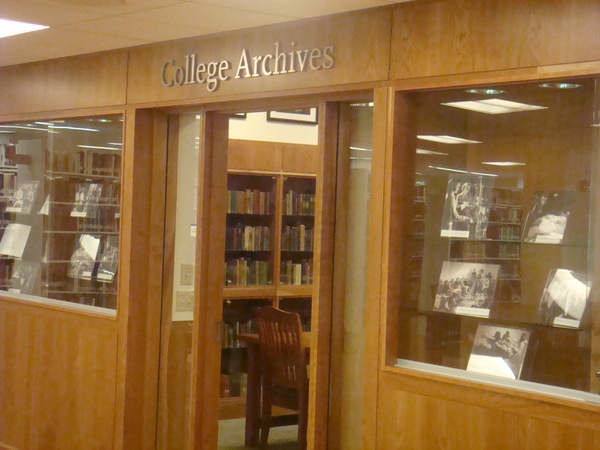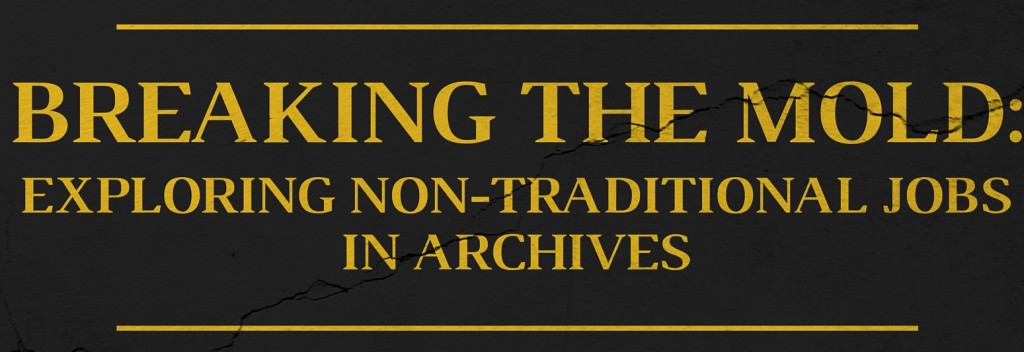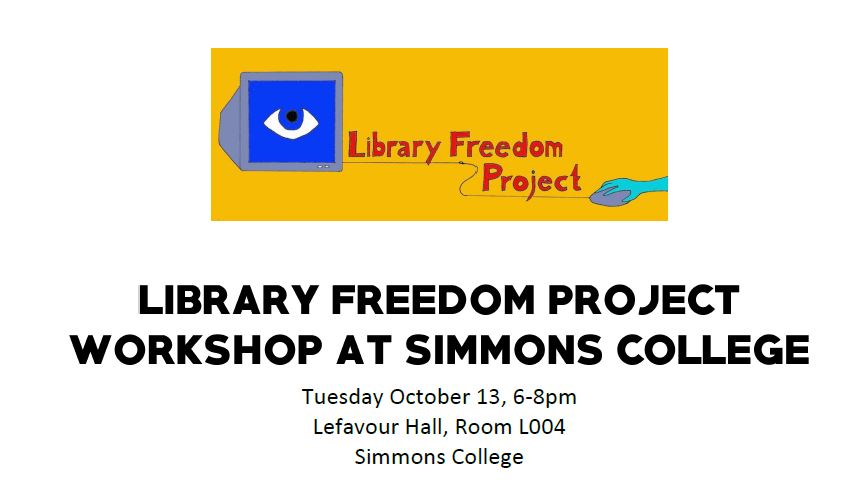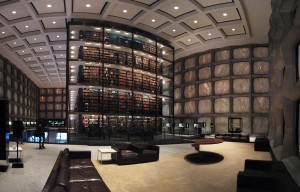
TOWN HALL FOLLOW-UP:
Because of the length of this blog post, we’ve elected to create a Table of Contents. We certainly encourage you to read the entire post, but if you’d like to jump specifically to a certain topic, the Table of Contents should make that easier:
- Introduction
- Theme I: 401
- Theme 2: Internships (438 & 502) & Capstone
- Theme 3: Academic Standards
Introduction:
On 26 January, 2016, SCoSAA held a Town Hall Meeting and Welcome Party, which included not only opportunities to socialize, but also a long conversation with several members of the archives faculty about the archives management track. The faculty who were able to be present included Kathy Wisser, Jeannette Bastian, and Peter Botticelli, who came with notes from fellow faculty members Janet Ceja and Donna Weber.
The questions that were askedhad previously been submitted to the faculty anonymously. These questions fell under three main themes, and thus the evenings discussion was organized in this fashion. Other questions that were not as well-suited to these umbrella groupings were saved to the end, and unfortunately time was too limited to handle all of the queries. However, in putting together this post, we have continued to work with the faculty members to get their thoughts on those matters. We will have those notes out as soon as possible
Theme 1: 401
Many of the questions submitted related to the requirement that archives management track students take LIS 401, the foundational course. However, when asked if that requirement could be lifted for archives concentrators, Jeannette Bastian, the head of archives management concentration, explained that that decision is not in fact up to the archives faculty. She explained that the core curriculum is decided by the overall SLIS faculty, in keeping with the fact that all students, no matter the concentration, receive the same degree at the end of the program. She did remark that there are concerns about 401 and its structure and content, and a 401 Committee meets regularly to discuss the issue. Kathy Wisser, a fellow archives professor and co-chair of the dual degree Archives and History program, is on that committee; she explained that they take the students concerns about 401 very seriously, and look at all the student evaluations. I have to say that the views on 401 are not unanimous, she added. But work is ongoing, and we take all the feedback we get very seriously. Students also chimed in, especially on the topic of the experimental 401 structure from fall 2015, when each class was themed differently. Some students enjoyed this experience very much, while others struggled to find the value of their particular course.
Another portion of the conversation relating to the question of 401s inclusion for archives concentrators came from Peter Botticelli, who explained, SLIS has one degree that covers a wide band of fields. Maybe someday in the future, Archives will split off and then archives faculty could define what you take, but we arent there yet. Right now, the assumption is that all our students come out with that one degree and are ready to work in all settings, which means that the departments has to decide as one whole degree what will be required of everyone to receive that degree.
Additional questions in this theme related to the problem of having content in the core LIS courses that relates to archives and archival theories. Kathy Wisser immediately agreed that this can be a problem, particularly in LIS 401, but explained that if one isnt an expert in the archival field, that can be a challenge, and finding people who have expertise across the fields can be difficult as well. Jeannette described, Ive been at Simmons for 16 years, and this situation was once much worse. We have tried to substitute some archives courses for core course, like substituting 442 for 404. We’ve also thought about doing that with reference, but as Kathy said, its really difficult to find people to do it. Because of the small number of archives faculty, its difficult to introduce new courses. Moreover, the faculty returned to the fact that having experiences that are outside the archives field can be beneficial for students. Professor Bastian said, Its a difficult call, but if you want to graduate feeling you can work in many different information settings, you need to have exposure to that range of places and information. I’m not sure moving all core courses to archives courses benefits you if you’re graduating with this MS degree.
Theme 2: Internships
Some exciting news from the faculty from the 502 internships – while still pending approval from another committee, the archives faculty have decided to expand capstone options, allowing students to pursue either a research project or a research paper in lieu of completing the internship. While the capstone is a requirement (mandated for ALA accreditation), the faculty is hoping that this broadened definition will make it easier for students to follow their interests. More details should be announced by the end of February/
In regards to the 438 internship, although students provide feedback via their reflections, it is difficult for the faculty to communicate any dissatisfaction with internship sites, seeing as these grievances would no longer be anonymous. The archives faculty is currently working to see if they can rethink 438 and make it more similar to the new changes they are implementing with 502.
In regards to payments for required internships, the archives faculty would like to emphasize that stipends are all right, including travel stipends, from the employer, but an hourly wage suggests that your experience is a job rather than an internship. If the school was only able to offer paid internships, there would not be enough internships for all interested parties.
A few questions also came in from online watchers relating to the changes in capstone, as well as to the placement in the 502 internships. The faculty stated that the changes to the capstone options would be available to students as soon as they have been approved by the curriculum committee, and will likely be available as soon as the summer 2016 term.
Kathy Wisser responded to a question about whether or not 502 internship placement is a lottery or competitive by stating, Its not a lottery or competitive, its other. Some people are matched immediately, and some come in with planned internships before the course. Some people have cars and some don’t. Its a complicated process, and we ask for multiple choices for a reason. It doesn’t always work great for everybody, but we try to make it the best process possible.
Theme 3: Academic Standards
The final theme that was discussed was that of academic standards and the size of the classes. One anonymous question related to the impact the number of accepted students has on class size, scheduling issues, and internship and class quality. Professor Bastian took this question first, explaining, It makes the internship assigning a nightmare, but Im not sure about the scheduling issue. I can say that a faculty member teaches a small class very differently than a large class, and you have to think about that. Kathy Wisser, whose 440 courses are almost always jam-packed, is accustomed to large classes. Were concerned about that because we want everyone to have a great experience, and large classes can at times potentially diminish that, she says. I came from the University of North Carolina where they had 300 person classes (not in archives), and its a top-ranked university. You have to have a strategy for active learning, but I take my waitlist because I get emails every semester from students who have to take the class to graduate, and we all get that. Were struggling with that balance, but were aware. When a student in the room broached the fact that the rooms are often quite cramped, Professor Wisser explained that it is at times hard to get larger classrooms, but that faculty members always advocate for them when they need to. We want everyone to be comfortable, she said.
Another question related to the large number of archives students heading towards a more limited number of jobs. The faculty described that this is a topic discussed throughout not just the Simmons program, but at conferences and within forums of the Society of American Archivists and other professional organizations. However, the faculty present thinks that, if the field is considered broadly, the small number of jobs isn’t such a problem. Professor Bastian says, My answer is to think about archival jobs in a broad way, not just in a traditional archives, but in any number of places. I’m a total idealist when it comes to archives. The archival discipline teaches and has always taught things that now everyone wants to know about: authenticity, metadata, many areas of technology all things that involved archival skill. That is why so many people are applying to archives programs. I don’t believe they’re applying to the program and then not finding anything to do, in this broad arena, or there would be no program. The other members agreed, citing that all work experience can be useful and that, despite economic problems over the last eight years, the faculty has not seen students truly struggling to find jobs.
As to questions remarking the academic rigor of the program, Peter Botticelli said, Having been on the Admissions Committee, the overall quality is remarkably high. Its not gone down; its gone up. He went on to explain the way our program mirrors the profession for which it prepares its students. Were not Yale or Harvard Law School in terms of a competitive, ruthless environment. We reflect our profession, Botticelli stated. Our graduates don’t earn the same salaries as those from Harvard Law School, but we have higher job satisfaction. Were also a profession on a trajectory of development. With the toughness of the courses in mind, Botticelli continued, Law schools grade on a forced curve, so some people are going to fail and get kicked out. We aren’t going to do that. Were trying to be collaborative and nice, and were just not a mean profession. Our graduates aren’t a commodity like someone with an MBA, who leaves knowing the salary their time is worth. Our students will be doing different things in different settings, for different salaries, with individual careers.
Students had also asked about the opportunity to prepare publishable papers during their time at Simmons. Though Janet Ceja could not be in the room, she had written a response to this question, which was read by Professor Bastian: If students would like to publish, they can do so by focusing on this from the beginning of the careers; use a literature review as something that will lead to further research, or even consider publishing a lit review. Professor Botticelli explained that he is in fact coauthoring papers with students, and said, The opportunities are there. Just get to know the faculty. Get to know their research, and they’ll most like be happy to work with you to do that. In general, the response to this question was that this opportunity is very much available to students, but students who have that interest need to make the effort and reach out to faculty. Kathy Wisser said, Were here all the time and this is what we love to do. Were not going to make up a project and ask you to come write with us, but if you want to play, come ask.
Professor Bastian noted one question that was submitted that related specifically to a debate going on right now in the profession, and remarked that a reading group, which could involve faculty participants, might be a welcome addition. SCoSAA will investigate how this might be organized, and if there are students who would like to participate in those discussions regularly.
The final query in this theme related to the standardization of materials across courses, as well as the expectations and materials covered in core classes. Professor Bastian expressed that the faculty members who teach each course meet together to discuss the classes and go over the syllabus, but that how each person interprets the syllabus will inherently be different. The degree of standardization can only go so far. Academic freedom is a thing, and even though everyone may be teaching the same topic, having different perspective makes the experience richer, she said. I don’t want to be a robot. Professor Botticelli also weighed in, adding, Right now across education there’s a lot of pressure to standardize and homogenize, but the faculty have pushed back on that and I agree. Diversity might overall give you a better experience, even if you have a professor with whom you don’t always agree. It will give you a tolerance for those differences.
The meeting ended on a positive note, and was an overwhelmingly positive experience. Students felt that their questions were answered and that, most times, the faculty has been aware and has been working hard to improve upon all issues. Faculty members were not just receptive of suggestions, but also were happy to receive new ideas, especially when it came to the topic of internships.
As for the topics that could not be discussed in person, we will be publishing remarks from the faculty as soon as possible. We would like to keep the conversation going and would encourage everyone to continue speaking to each other and more importantly with the faculty!





